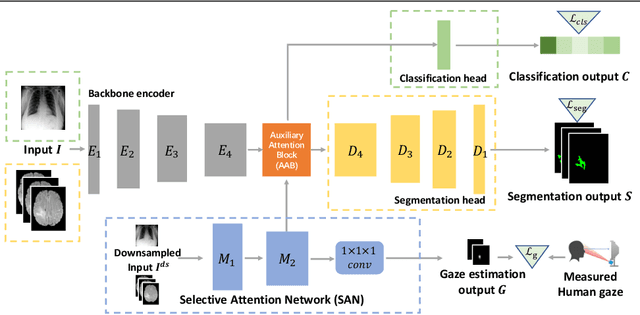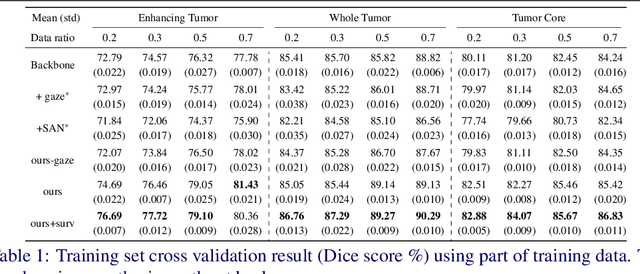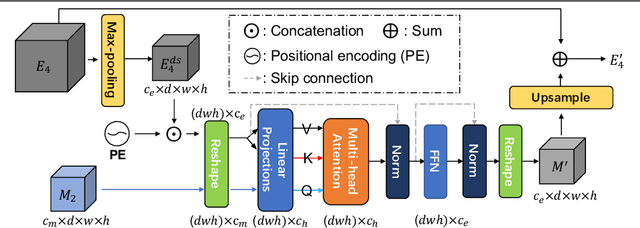Hirofumi Seo
Leveraging Human Selective Attention for Medical Image Analysis with Limited Training Data
Dec 02, 2021



Abstract:The human gaze is a cost-efficient physiological data that reveals human underlying attentional patterns. The selective attention mechanism helps the cognition system focus on task-relevant visual clues by ignoring the presence of distractors. Thanks to this ability, human beings can efficiently learn from a very limited number of training samples. Inspired by this mechanism, we aim to leverage gaze for medical image analysis tasks with small training data. Our proposed framework includes a backbone encoder and a Selective Attention Network (SAN) that simulates the underlying attention. The SAN implicitly encodes information such as suspicious regions that is relevant to the medical diagnose tasks by estimating the actual human gaze. Then we design a novel Auxiliary Attention Block (AAB) to allow information from SAN to be utilized by the backbone encoder to focus on selective areas. Specifically, this block uses a modified version of a multi-head attention layer to simulate the human visual search procedure. Note that the SAN and AAB can be plugged into different backbones, and the framework can be used for multiple medical image analysis tasks when equipped with task-specific heads. Our method is demonstrated to achieve superior performance on both 3D tumor segmentation and 2D chest X-ray classification tasks. We also show that the estimated gaze probability map of the SAN is consistent with an actual gaze fixation map obtained by board-certified doctors.
 Add to Chrome
Add to Chrome Add to Firefox
Add to Firefox Add to Edge
Add to Edge